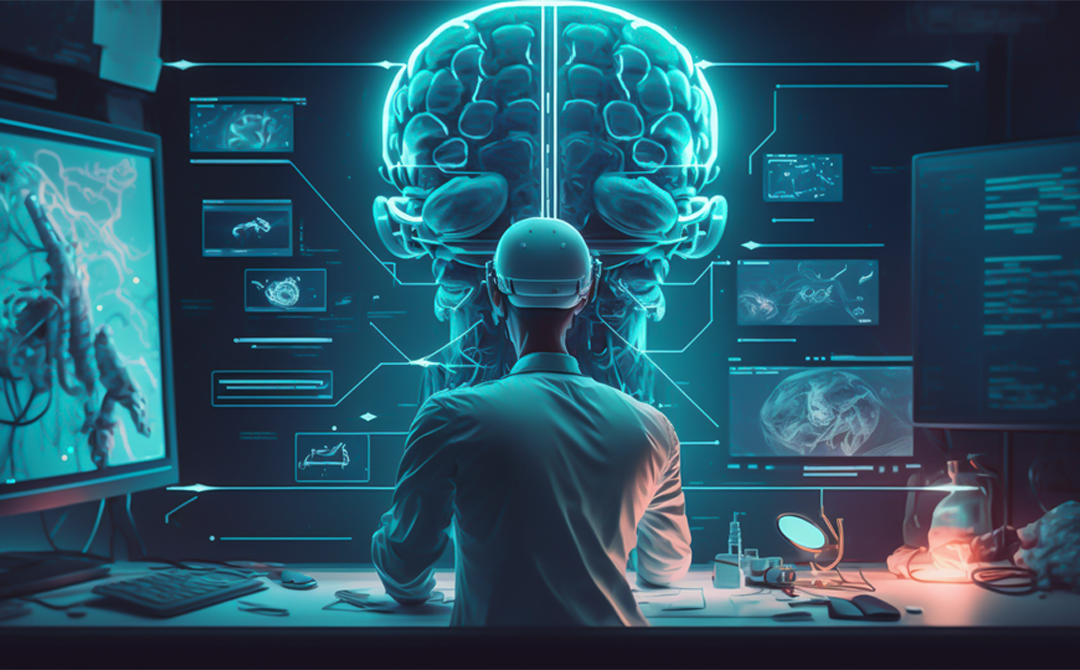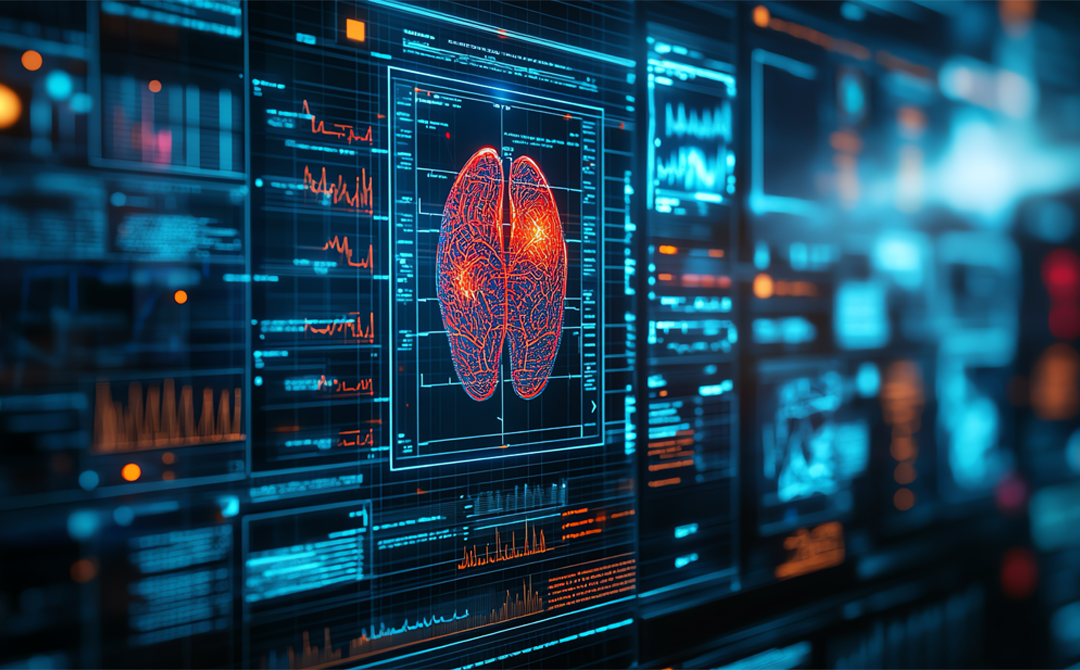
Do you have a fitness band or a smartwatch, or have any diet or exercise applications installed on your phone? If yes, you can see how Artificial Intelligence (AI) has invaded and influenced our lives.
By 2025, it is anticipated that there will be close to one trillion connected devices worldwide, owing to the increasing penetration and popularity of AI-enabled devices. These devices provide an avalanche of data that helps carriers better understand their customers, resulting in new products, targeted pricing, and real-time service delivery. Similarly, AI, machine learning (ML), and the Internet of Things (IoT) can personalize patient therapy by anticipating their needs based on their behavior. By 2030, AI will have access to a wide range of data sources, recognize disease trends, and pinpoint medication and care, according to the World Economic Forum. Furthermore, healthcare systems will be able to forecast whether a person will develop a chronic condition and will offer proactive preventative remedies.
AI in healthcare
Health care is a high-risk industry. Fortunately, AI can improve or speed up many of its systems and procedures, including:
- Pre-screening patients
- Intake and triage of patients
- Medical imaging and diagnosis
- Preventive care based on data
- Drug discovery
- Enhanced care
By improving workflows and operations, assisting medical and non-medical workers with repetitive activities, assisting users in gaining faster answers to queries, and generating innovative treatments and therapies, AI in healthcare can benefit patients, payers, researchers, and doctors.
AI-led transformation in health insurance
Insurance companies in the United States are already utilizing healthcare data analytics to provide customized services based on risk profiles and identify qualifying patients for wellness programs to be engaged as soon as possible. Because of this transformation, insurance will change from spot and repair' to 'foresee and avoid,' affecting every industry area. As brokers, clients, financial intermediaries, insurers, and suppliers grow more competent at harnessing advanced technology to improve decision-making, customer experience, productivity, and cost-cutting, the rate of change will ramp up. As a result, AI in healthcare would become one of the fastest-growing investments in the sector. According to Accenture research, the health AI market was worth $600 million in 2014 and is anticipated to increase to $150 billion by 2026.
AI case examples
In action, AI can change the face of health care, save lives, and support better global health.
Livongo Health is a health firm that offers blood glucose meters, scales, and other products while collecting data from users and storing it in a large database. The organization uses this information to send customized messages to the right customers at the right time to interact with them one-on-one. They also use big data to spot trends and determine which treatments are effective for each individual.
According to a Mayo Clinic study, utilizing AI in electrocardiograms can improve clinicians' ability to detect early indicators of asymptomatic left ventricular failure, a well-known risk factor for heart failure and other heart-related disorders.
A team of academics and scientists from Moorfields Eye Hospital in London and University College London (UCL) demonstrated that AI-powered software could detect up to 50 eye illnesses with the same accuracy as a doctor by quickly glancing through images.
AI's role in telemedicine and pharma
Telemedicine has emerged as the new healthcare paradigm since AI has proven to be a powerful tool for the future of care delivery. With robots, AI in telemedicine can help with intelligent diagnosis and remote patient monitoring, reduce hospital visits, and give better care to older patients. In turn, AI-enabled robots can remind patients to take their meds, monitor their vital signs, and alert others in the event of an emergency. Further, AI in telemedicine can help make health care more accessible and affordable in many developing nations with a skewed doctor-patient ratio.
The McKinsey Global Institute estimates that AI and machine learning in the pharmaceutical industry may produce $100 billion in revenue per year for the US healthcare system. Artificial intelligence (AI) has the potential to transform pharmaceutical discovery by speeding up research and development, decreasing drug prices, and boosting the likelihood of FDA approval. AAI and machine learning algorithms can identify substances that failed in clinical trials and predict how they might use them to treat various diseases. Also, AI can impact quality control, material waste reduction, factory reuse, and predictive maintenance. In addition, machine learning can assist in forecasting and reducing over- and under-demand and managing supply chain difficulties and production line failures.
AI's role in Proactive Care Management
AI has emerged as a powerful tool for the future of care delivery, with proactive care management emerging as the new healthcare paradigm. The challenges with traditional sensor technologies, such as remote monitoring patient devices, are the lack of proactive monitoring to prevent potential incidents or predict complications of a specific chronic condition. Also, traditional risk tools only evaluate current risks, which are factored in as high risks for the future. Moreover, this model fails to identify healthy patients who can turn into high-risk eventually. The number of patients requiring emergency admission, the best treatment options available, and the cost of care, among other things, can be predicted using AI/ML by analyzing patient behavior patterns, vitals, and crucial health indicators. On the other hand, traditional sensors will only alert you after an event has occurred, such as a brain stroke or cardiac arrest.
AI's primary goal is to improve human capabilities, resulting in improved patient outcomes and lower costs. AI can aid clinicians with tasks and healthcare data analytics, resulting in improved efficiencies and care. For example, a patient with a specific condition may only have a rudimentary awareness of how the illness advances. Several underlying factors could be contributing to the problem's escalation. As a result, clinicians today need technology to create a 360-degree care plan that addresses all disorders at once rather than one at a time.

AUTHOR - FOLLOW
Pradeep Kumar Jain
Senior Director, Healthcare
Topic Tags




